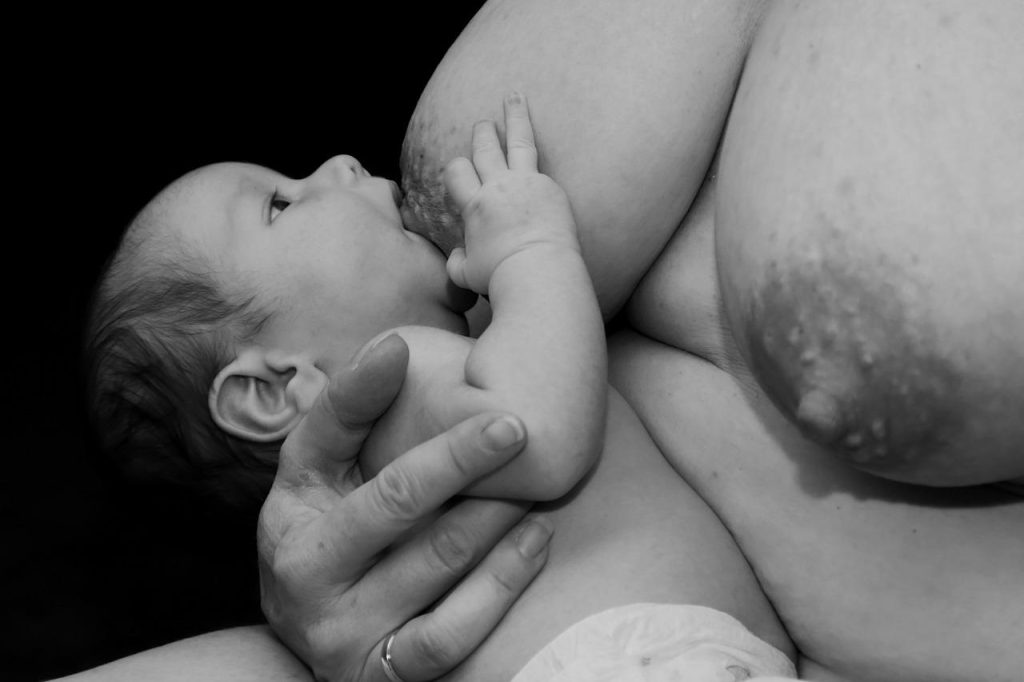5 Benefits of Breastfeeding You Need To Know About
For sure, there are many benefits of breastfeeding. The main one for a baby is that it’s the only way to give them all the necessary nutrients. Breastmilk comprises over 300 components, including proteins, carbohydrates, fats, vitamins, minerals, and water. These are all essential for your baby’s growth and Development. If you’re breastfeeding your baby, you’ll also be able to ensure they get exactly what they need from day one: no supplements will be necessary!
Also, antibodies can be passed from mother to baby through the breast milk. This means your baby will probably get sick less often if you breastfeed him. When I read this, I thought, “Yes, let’s give Baby a good, healthy start in life!”
Later, after reading some books, I found out that there were lots of other benefits of breastfeeding. For example, breastfed children are less likely to be obese when they grow up. In the last 20 years, studies have shown that breastfed babies grow up to have higher IQs compared to formula-fed babies. This is even more noticeable with premature babies.
But with breastfeeding, it is essential to be flexible. What works for other moms may not work for you. If you can’t breastfeed, you can express breast milk and feed that to your baby. If you need to go back to work and can’t express milk, then be grateful that you did manage to feed your infant colostrum in the first week of life. It is good to notice that the milk made by human mothers is probably the best food for human babies.
5 Benefits of breastfeeding – Immunity
As mentioned above, breast milk can transfer antibodies from the mother to the baby. Antibodies are a part of your immune system: they keep you healthy by fighting bacteria and infections. A grown woman can make antibodies, whereas newborns cannot. Thus, the antibodies in the breast milk will help your baby stay healthy until he can make his antibodies. It will happen at about one year of age.
About breastfeeding – colostrum
In the first 4 or 5 days after the baby is born, the milk from the breast is not white. Instead, it is sticky, yellowish, and not very much of it. This particular form of early milk is called colostrum.
Colostrum is the first milk that a mother produces after giving birth. It’s packed with antibodies, vitamins, and minerals that help the baby’s immune system and digestive tract prepare for life outside the womb. Colostrum contains different amounts of protein, sugars, and fats than breast milk made later. It has a higher concentration of antibodies. It seems as if nature has purposely designed mothers’ milk so newborns get a good dose of antibodies when they first enter the world. After all, your baby was in a germ-free environment when he was in your womb.
My friend, Vivi, breastfed her first child for three months and her second for nine months. She noticed that the first child got sick more often than her second child. “I think it is because I didn’t breastfeed him as long,” she said. “I wish I knew; I would have breastfed him longer.” When her kids were older, she found no difference in their susceptibility to illnesses.
5 Benefits of Breastfeeding – Jaw Development
Believe it or not, a baby must do a lot of work when breastfeeding. His tongue and lower jaw have to move up and down continuously to help “pump” the milk out. Also, the entire mouth needs to be active to maintain a good seal, which is needed for suction. This constant movement of the mouth and tongue may lead to healthier jaw and teeth development.
The muscles a baby uses when he sucks from a bottle differ from those used when sucking from the breast. In bottle feeding, the liquid becomes more accessible and faster. Sometimes, the food comes out too fast, and the baby must push his tongue forward to slow the flow. This forward motion of the tongue may lead to a condition called tongue thrust. Some dentists feel that bottle feeding leads to tongue thrust and improper teeth and speech development.
5 Benefits of breastfeeding -convenience
Almost all breastfeeding books will list “convenience” as one of the benefits of breastfeeding.
- you don’t need to scrub and sterilize baby bottles;
- you don’t need to buy formula, and
- you don’t need to reconstitute or warm up breast milk.
Breast milk is the perfect temperature, and it’s always ready. Yes, all that is true, but…
It’s not all peaches and cream! Breastfeeding is hard at first, so the “convenient” part comes later – after you’ve figured out how to do it and bypassed all the problems. Once you’ve got the hang of it, breastfeeding is more convenient than bottle feeding. Here’s another thing to think about: women have breasts, so women are the ones who have to get up in the middle of the night to feed babies. Not so “convenient” when you’re tired and already sleep-deprived.
But there’s a solution:
- You can pump milk out of your breast, called expressed milk, and put it in a baby bottle.
- You can give Baby breast milk and formula. This is called supplementing.
This way, you can give your baby breast milk and recruit Dad in the nighttime feedings (ha!). You expressed that milk and supplementing both works fine and are perfectly acceptable.
Affordable
Breastfeeding is cheaper than formula feeding. You can say breastfeeding is free! It would be best to eat a little more so that your body has enough energy and nutrients to make breast milk; however, this is usually not a problem in today’s society. For most women in the USA and Canada, the problem is not how much food they get but what kind of food they get. In contrast, formulas cost you real money. One large tub of baby formula powder will cost you at least $25. In addition, there is the price of the baby bottles, bottle liners, soap, hot water, and energy used to sterilize the bottles.
One study showed that breastfed babies go to the doctors and hospitals less often; this resulted in a lower cost of health care – another reason that makes breastfeeding affordable.
Note this: If you are pregnant or have a young child, government programs like WIC will provide food and baby essentials to low-income families.
5 Benefits of Breastfeeding – Comfort and Bonding
Another benefit of breastfeeding is that it creates a special bond between Mother and Baby. Breastfed babies are held closer to the mother’s body than are bottle-fed babies. Breastfed babies have skin-to-skin contact with the mother; this does not usually occur with bottle-fed babies.
Breastfeeding is a partnership. Mother has to be willing to feed the baby, and Baby has to be willing to suck. Her breasts will become uncomfortable if the mother does not feed the baby. If the baby does not suck, he will be hungry. Breastfeeding gives the baby nourishment and comfort. It also gives the mother a sense of satisfaction and calmness.
Bottle-fed babies love and are loved too, but since Mom or Dad (anyone, for that matter) can hold the bottle, the relationship between adult and baby is not quite the same. As the baby ages, some parents will prop up the bottle so the baby can drink by himself, and the adult has a free hand to do other work. At this point, the bottle serves to provide food without bonding.
The same is true if you express breast milk and offer it in a bottle – you lose some skin-to-skin contact, which is essential to newborns. Comfort, bonding, and skin-to-skin contact are so beneficial that some hospitals have implemented kangaroo care. Kangaroo care is a program that allows parents to hold their naked, premature babies close to their hearts to encourage weight gain and better health.
Other Benefits of Breastfeeding
Colostrum, the early milk made during the first few days after birth, has a laxative effect on the newborn. This allows the baby to expel (poop) meconium. Meconium is a dark, greenish poop inside Baby’s body while still in utero.
There are other small and undefined benefits of breastfeeding that I have not discussed. However, one area that deserves attention is the benefits of breastfeeding to the mother.
Is breastfeeding healthier than formula?
There are many reasons that breastfeeding is a better choice for your baby. Breastmilk contains all the nutrients, vitamins, and minerals your baby needs to grow into a strong and healthy toddler. Formula can’t compete with breastmilk when it comes to nutrition.
Babies who drink formula are more likely to develop allergies, asthma, diabetes, and obesity later in life. If you’re considering breastfeeding, don’t be discouraged by what you hear from others—the formula is not the same as breastmilk.
Benefits of breastfeeding – summary
Breastfeeding is the best way to give your baby the nutrients for healthy growth and Development. When you breastfeed your baby, you pass on antibodies that help protect against disease and infections. Breast milk also contains all the vitamins and minerals your baby needs for growth and Development, including vitamin D and iron. Breastfed babies are also less likely to have diarrhea, ear infections, respiratory tract infections, gastrointestinal diseases, and upper respiratory tract infections than babies who aren’t breastfed.
Breast milk has been shown to improve your baby’s immune system and brain development. It can help prevent illnesses like diabetes mellitus type 1, asthma, obesity, and cancer in later life, and allergies like eczema.



